Earlier this year, I closed my startup. So now I get to reflect on what I’d have done differently. Hindsight is unfair and inaccurate, but I still enjoy its lessons. This is one, a note to my future self: Don’t call your projects ‘startups’.It’s a semantic trick, but a really important one. Here’s why.
‘Startups’ have become a commodity in an industry of startup conferences, websites, courses and competitions. As founders of young organisations, we struggle to distinguishgenuine guidance and support from the distracting pizzazz of the startup industry, where we’re just the product, not the customer. Lured by the lights, we spend valuable hours crafting slide decks, jumping on planes, giving presentations and filling out entry forms, almost always so that someone can sell tickets to the show. I worked it hard, and I didn’t see the return. I want that time back for my business.
Here are five new rules for myself.
1. NO MORE STARTUP EVENTS
I’ve been invited to four startup events just this week. Wait — checks email — that’s five. It’s a freakin’ craze. Startup seminars, breakfasts, retreats, showcases. Say no to all of them.
Startup events are supposedly ‘good for networking.’ I made an interesting connection at one or two, I think. For the most part they’ve sucked vast amounts of time I really should have put into working on my organisation.
Your next project may be in publishing, healthcare, engineering or another industry, but it’s probably not in the startup industry. At a startup-industry event, you’re only going to meet startup-industry people. They are not your customers. Only go to events packed full of potential customers in your industry.
Very occasionally, treat yourself to a dinner with a few entrepreneurs you like — it helps fight the loneliness. Otherwise, if you’re not out selling, get back to your office and work. Or go home and spend some down-time with your family.
2. NO MORE STARTUP COMPETITIONS
Then there are the competitions. Innovation competitions, pitching competitions, business-plan competitions. Sometimes the prize is an investment in your company. (First prize, an investor! Second prize, two investors!)
Honestly, do you want an investor who comes shopping for startups at a cocktail function? Winning an investment is like your bank calling to say you’ve won an overdraft. Lucky you.
It can be worse. I got a call from a major international consulting firm to tell me we’d won a big innovation award. But I can’t tell you about it because I have to pay them a licence fee if I do. Seriously: they wanted 7500 euros just to let us tell people we’d won. Another time, I got interviewed on a startup-support radio show, only to be asked to sign a letter afterwards saying they’d given us R188000 in airtime. (I didn’t sign.)
You can also win ‘business support’, or well-meaning MBA students to ‘help you grow your business’ for their course project. I’ve spent days with teams who are new to my industry using my time to tell me things I already know. I want those days back.
If you’re certain that you have time to enter competitions, only enter the ones where they’re giving out loads of free money and you know you can win. Don’t be the product.
3. BEWARE THE WARM GLOW OF STARTUP MEDIA
The startup-industry press is so seductive. It’s pretty and says it loves you. Being a startup, especially based in Africa, is great for media coverage, more especially if you win a startup award.
At Paperight we kept a long list of posts and articles about us that came from startup-industry acclaim. We won startup and innovation awards in London, Frankfurt and New York, an Accenture Innovation Award, and public congratulations in South Africa’s national parliament. We were featured in several ‘startups to watch’ articles and were profiled on the websites of CNN, Forbes and others. We were even featured in a book about open-business innovation. We’re fairly certain that the awards made this coverage happen.
But in not one case did we see a corresponding spike in sales (or calls from investors), and for a young business running out of runway, sales are all that really matters. For a while, the acclaim is great for motivating staff, and to help inspire an investor’s confidence, but the effect wanes after a few awards. Don’t chase coverage in the startup industry. Find your own industry’s media outlets (they’re harder to find and less sexy than the startup press) and focus only on them.
4. DON’T TELL CUSTOMERS YOU’RE A STARTUP
Every office-bound exec wants to love a startup. Like a pet. But no one wants to buy from a startup. Especially big companies. Big companies want to buy from big, stable businesses. They want to trust that you’ll still be around in a few years. And their people need to feel you’re a familiar name. At Paperight, we needed book publishers to trust us with their most valuable IP. It’s insane to think they’d give it to a ‘startup’. We could have put our whole business in a cupboard for ten years, then dusted it off and they’d be more likely to work with us, because we’d be too old to be called a startup.
5. Get real help
The startup industry appeals to a very real need for emotional, intellectual and financial support. But (except in very rare cases) it is going to distract you more than it delivers. It’sbad for focus. Instead, find experienced confidants from an industry like yours. If nothing else, their emotional support will mean more to you than a hundred hollow prizes.
I’ll be surprised if I stick to my new rules. So remind me, please, because I’ll probably forget: run a business, not a startup. You don’t have the time.
______________________
About the Author
This article was produced by Arthur Atwell. See more.





























